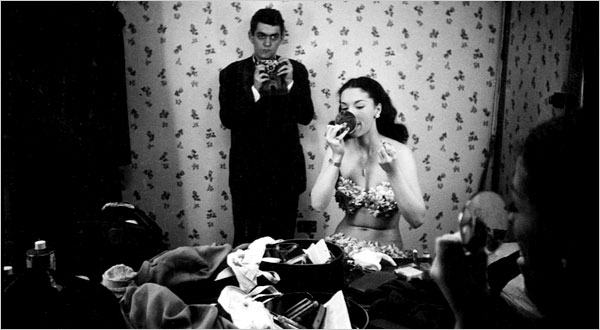
Few producers and directors, living or deceased, have quite as laureled and enshrined of a cinematic catalogue as Stanley Kubrick. From this writer's perspective, not one of his films is a throwaway and even his worst is metric tons better and more resonant than many modern filmmakers' productions. One peek at the indexes of utter tripe sold and mass-marketed into multi-million dollar grossing spectacles and it's almost disheartening to know that at one time serious movies had a serious place in the realm of Hollywood; now, their niche is more difficult to maintain and even harder to find - especially if you don't live in a large city where movies expecting to gain far too little for their effort are shown in smaller, historically-reputable theaters. Just for an example, Soderbegh's 2008 biopic Che starring Benecio Del Toro, which received its fair share of glowing reviews and awards, saw close to zero advertising and even less time spent in the few theaters gracious and venturesome enough to house it; on the other hand, James Cameron's Pocahontas and Midworld ripoff Avatar gets pumped with marketing and is still enjoying its insanely popular run in theaters. I realize in America a movie about Ernesto Guevara and by extension the historical facts surrounding the communism of the time might not have a wide appeal, but the point remains: what's contemporarily regarded as important and salient in this country, quite frankly, simply is not important or salient. Philosophically, Kubrick was also one of the most brutally honest and direct; he throws no punches, refuses to shy away from certain ignoble human truths, doesn't cater to any standardized Hollywood escapism tropes, and is uncompromising with regards to these characteristics. An interesting facet to his work as a whole: all but his first two films were adapted from novels and he was known to write his screenplays in collabo with other writers, usually novelists. To be sure, Kubrick's work is not entertainment for entertainment's sake. But is that all we want? Is the only thing we want, to quote another bad movie, "to be entertained?" or do we seek more from such a golden medium? The above quote is as representative of Kubrick and his work as I can think of and in my opinion is one of the bravest, most responsible, admirable, and electrifying perspectives on life one can string together.
Kubrick's career began with a photography job at Look magazine seized while he was still in his late teens, where the cinematographic skills he would learn there would greatly inform his future filmmaking and visual aesthetic. His poor grades in high school precluded all hope for him to seek higher education of any kind; he didn't need it.

No comments:
Post a Comment